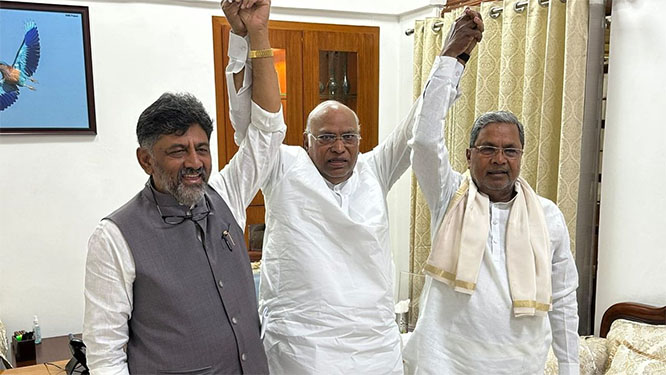New Delhi, Mar 16: Minutes after he was sentenced to two years in jail in a 2003 human trafficking case by a court in Patiala, Punjabi pop singer Daler Mehndi has been granted bail, according to news agency ANI. The 50-year-old singer was convicted earlier today and immediately taken into custody by the Punjab Police.
Daler Mehndi, 50, and his brother, Shamsher Singh, had been accused of illegally sending people abroad disguised as members of his troupe by charging hefty "passage money."
The Mehndi brothers had allegedly taken two troupes in 1998 and 1999 during the course of which 10 persons were taken to the US as group members and were "dropped off" illegally.
Daler Mehndi, on a trip to the US in the company of an actress had allegedly "dropped off" three girls at San Francisco.
Both brothers took another troupe to the US in October 1999 in the company of some other actors during which three boys were "dropped off" at New Jersey.
Soon after the Patiala Police registered a case against Daler Mehndi and Shamsher Singh, 35 more complaints came up levelling charges of fraud against the two brothers.
The complaints had alleged that two brothers had taken "passage money" from them to help them migrate to the US "illegally", but had failed to do so.
Patiala Police had even raided the offices of Daler Mehndi at Connaught Place in New Delhi and seized documents, including the case file of those who had paid the alleged "passage money" to Mehndi brothers.
In 2006, Patiala Police filed two discharge petitions stating Daler Mehndi to be innocent, but the court had upheld that the singer be prosecuted as there was "sufficient evidence against him on the judicial file and scope for further investigation".
Daler Mehndi had a massive following in the late nineties and early 2000s for his pop songs, including the hit numbers "Tunak Tunak Tun", "Bolo Ta Ra Ra" and "Saade Naal Rahoge Toh...".







Comments
Add new comment